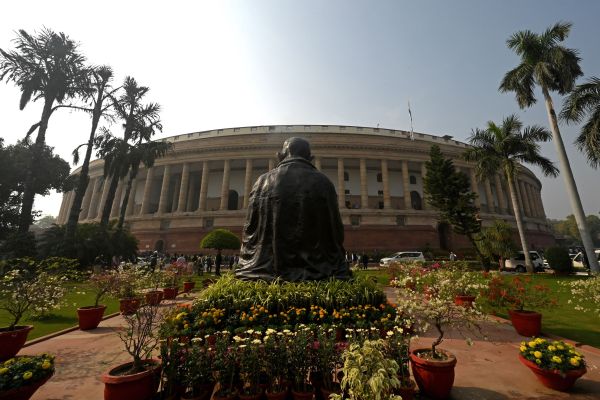India emerged as a key overseas market for several global tech giants in the past decade as Meta, Google and Amazon aggressively raced to find the next and perhaps the last great growth geography. Now the South Asian nation is looking to leverage its vast reach to influence merger and acquisition deals overseas.
New Delhi proposed amendments to its Competition Act, 2002 Friday to introduce a number of changes, including requiring the permission of local watchdog (Competition Commission of India) for all overseas deals exceeding $252 million in value for firms with “substantial business operations in India.”
India, the world’s second largest internet market that has drawn investments of tens of billions of dollars from Meta, Google and Amazon and venture capitalists including SoftBank, Sequoia and Tiger Global, has traditionally scrutinized deals based on asset size and not the transaction value. According to law firm Shardul Amarchand Mangaldas, Indian regulators approved over 700 fillings in the past decade alone.
But things appear to be taking a shift and attempting to bring parity between India’s position to those of China, the U.S. and Europe.
“There has been a significant growth of Indian markets and a paradigm shift in the way businesses operate in the last decade. In view of the economic development, emergence of various business models and the experience gained out of the functioning of the Commission, the Government of India constituted Competition Law Review Committee, to examine and suggest the modifications in the said Act,” the bill published Friday afternoon said.
The Competition (Amendment) Bill, 2022, has proposed the following changes:
(a) changes in certain definitions like “enterprise”, “relevant product market”, “Group”, “Control”, etc., to provide clarity;
(b) broadening the scope of anti-competitive agreements and inclusion of a party facilitating an anti-competitive horizontal agreement under such agreements;
(c) provisions for reduction of time-limit for approval of combinations from two hundred and ten days to one hundred and fifty days and forming a prima facie opinion by the Commission within twenty days for expeditious approval of combinations;
(d) provisions for “value of transaction” as another criteria for notifying combinations to the Commission;
(e) limitation period of three years for filing information on anti-competitive agreements and abuse of dominant position before the Commission;
(f) appointment of the Director General by the Commission with the prior approval of the Central Government;
(g) introduction of Settlement and Commitment framework to reduce litigations;
(h) incentivising parties in an ongoing cartel investigation in terms of lesser penalty to disclose information regarding other cartels;
(i) substitution of a provision which provides for penalty up to rupees one crore or imprisonment up to three years or both in case of contravention of any order of the National Company Law Appellate Tribunal with provision for contempt;
(j) issuance of guidelines including on penalties to be imposed by the Commission.
The move comes at a time when bankers in India are brokering a record number of mergers and acquisitions even as deal activity slows elsewhere. India saw deals worth more than $82 billion complete or seeking approval in the quarter that ended in June, according to Bloomberg. The dealflow in India is projected to grow even further.
“India is a super important market for sovereign funds, private equity and global pension funds, who are taking an increasingly important role in the number of M&A transactions that are currently happening,” said Kaustubh Kulkarni, heading of investment banking in India for JP Morgan and Southeast Asia, in a recent TV interview.
